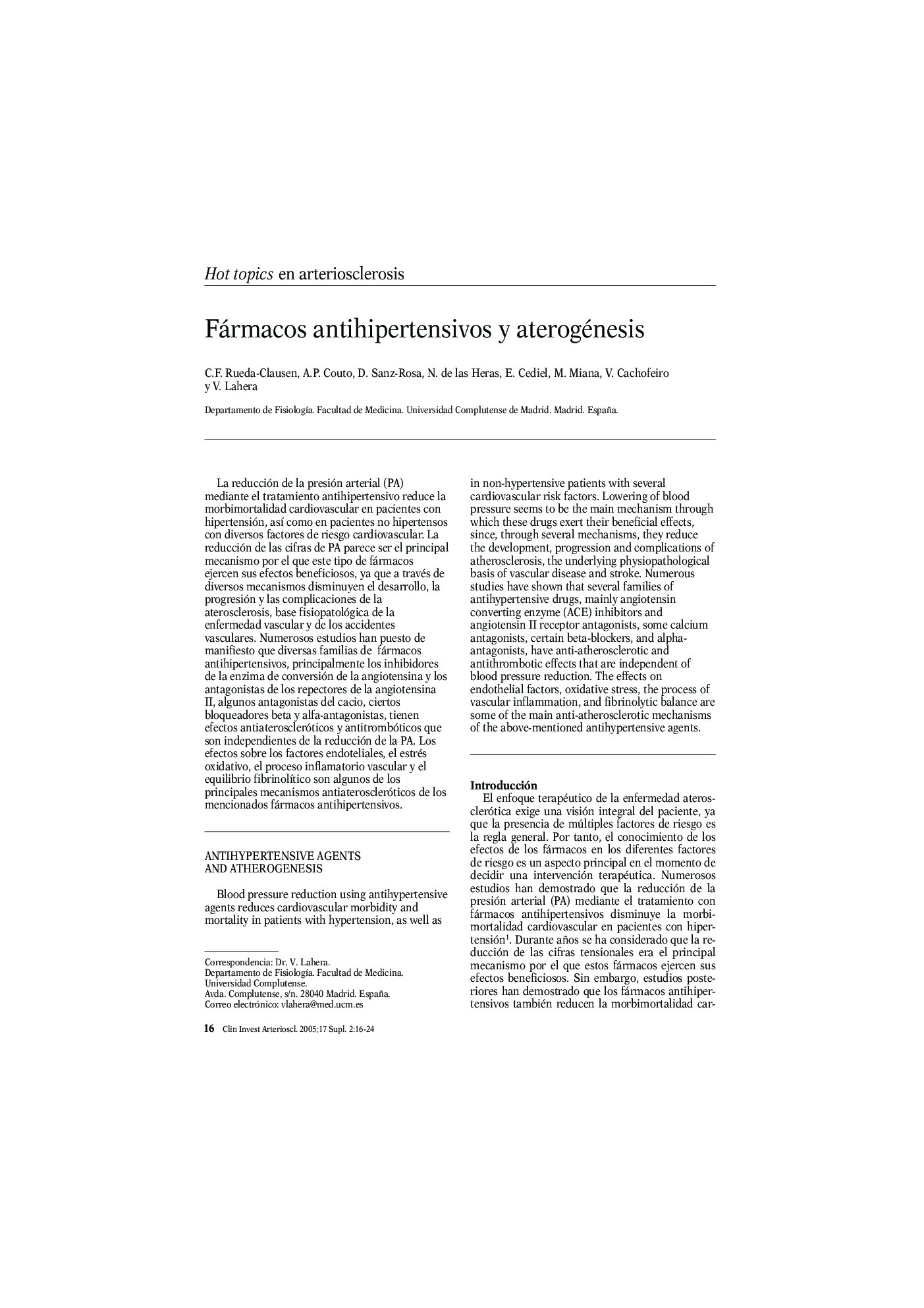| Article ID | Journal | Published Year | Pages | File Type |
|---|---|---|---|---|
| 9146860 | Clínica e Investigación en Arteriosclerosis | 2005 | 9 Pages |
Abstract
Blood pressure reduction using antihypertensive agents reduces cardiovascular morbidity and mortality in patients with hypertension, as well as in non-hypertensive patients with several cardiovascular risk factors. Lowering of blood pressure seems to be the main mechanism through which these drugs exert their beneficial effects, since, through several mechanisms, they reduce the development, progression and complications of atherosclerosis, the underlying physiopathological basis of vascular disease and stroke. Numerous studies have shown that several families of antihypertensive drugs, mainly angiotensin converting enzyme (ACE) inhibitors and angiotensin II receptor antagonists, some calcium antagonists, certain beta-blockers, and alphaantagonists, have anti-atherosclerotic and antithrombotic effects that are independent of blood pressure reduction. The effects on endothelial factors, oxidative stress, the process of vascular inflammation, and fibrinolytic balance are some of the main anti-atherosclerotic mechanisms of the above-mentioned antihypertensive agents.
Related Topics
Life Sciences
Biochemistry, Genetics and Molecular Biology
Physiology
Authors
C.F. Rueda-Clausen, A.P. Couto, D. Sanz-Rosa, N. de Las Heras, E. Cediel, M. Miana, V. Cachofeiro, V. Lahera,
